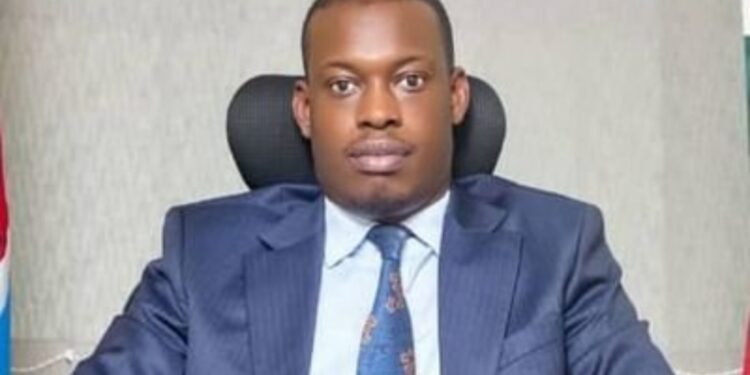The State Minister of Tourism Martin Mugarra Bahinduka has emphasized the importance of striking a balance between public access and conservation within Murchison Falls National Park. The minister clarified that while alternate routes have been opened for public use, the integrity of the park must be preserved to maintain its allure for tourists and protect wildlife from disruption.
Since the rehabilitation of Karuma Bridge began, travel to the West Nile and Acholi regions has become increasingly difficult, with most vehicles relying on the bridge for passage. In response, an alternative route has been opened through Murchison Falls National Park. However, vehicles passing through the park are required to pay a fee of UGX 25,000.
On Monday, Members of Parliament Geoffrey Feta (Ayivu East Division, Arua City) and Gilbert Olonya (Kilak County) called for the suspension of this transport fee. The MPs urged the government to allow free entry and exit through the park, arguing that the current fee adds an unnecessary burden on travellers during a time when alternative routes are limited due to the bridge’s ongoing repairs.
“We understand the need for conservation, but given the current situation with the Karuma Bridge, it’s only fair that travellers are given a reprieve until the government provides a more permanent solution,” said Hon. Feta. The debate arose after public demand for opening more routes through the park for regular transit.
However, while addressing the media on Tuesday, the minister explained that while they understood the concerns of the public, it was crucial to minimize traffic through certain sections of the park to preserve its natural beauty and tranquillity. “We have allowed buses offering free transport because they’re easier for us to manage and monitor. These buses have been given access through the Tanga-Masindi road, and it’s working properly,” the minister said, addressing concerns about restricted access.
According to the minister, a shorter, alternative route has been made available, only 30 kilometres longer than the direct route, but with significant benefits for conservation. “If you use the alternative through Tanga and Bugungu gates, you could reach Kampala faster than someone taking the longer route through the park,” the minister pointed out.
The tourism roads, originally designed and managed by the Uganda Wildlife Authority (UWA), were created with the intent of preserving the park’s ecosystem. The minister explained, “These roads were designed for tourism. Opening them up to general traffic would disrupt the serenity that tourists pay for, disturb the wildlife, and lead to littering.”
One of the key concerns raised by the minister was the impact of increased noise and traffic on the park’s wildlife. “These animals are like us—they’re not used to noise. Since 1926, there hasn’t been heavy traffic in the park. If we suddenly bombard them with noise, they’ll move further away, leading to human-wildlife conflict in surrounding communities,” the minister explained, underscoring the potential long-term effects on conservation.
The minister also noted the economic importance of the park, with Murchison Falls National Park generating around 20 billion UGX in revenue in 2022, of which 15 billion UGX came from park entry fees. “The districts surrounding the park, including Nwoya and Oyam, benefit directly from these revenues. If we stop collecting, these districts lose out on a significant source of income,” he warned.
Looking forward, the minister shared that discussions about the future of park access were ongoing within the government. “His Excellency has guided us to present our case before the Cabinet again on Monday with scientists and conservationists. This issue is about conservation, not politics, and we must ensure that our decisions reflect that,”
The call to preserve the park is not just about money but a commitment to maintaining Uganda’s natural heritage. “Let’s not undo decades of conservation for the sake of convenience,” the minister urged.
He clarified that unnecessary noise in parks will negatively impact Uganda’s conservation struggles, giving an example of areas where they are mining oil, the noise there and the impact it has caused pushing the animals further because it is not something they are used to.
“But also the tourists who come to Uganda and want to experience there is a difference between going through the street of Kampala and the park here you will have 100 cars, but when someone enters the park, he wants to get a different feeling. He doesn’t want to look at vehicles. He just wants to get the noise, the sound of nature and so many other things. So my argument is it has nothing to do with money, by the way, because even the waiver that we have given, and I want you to understand unless you’re being unfair and we have some intelligence on the ground, that’s why I’m saying we should differentiate politics from reality,” he said.
He called upon the MP and other local leaders in the West Nile and Acholi region not to politicise the issues and urged them to look at the big picture of protecting Uganda’s tourism sector, especially the conservation arm. “Let us not kill the entire sector. Let’s leave one route for tourism, and leave the other for public access, and we have given the access. It is free of charge. So my argument is not money. We can survive without this money. Our argument is conservation.”
Do you have a story in your community or an opinion to share with us: Email us at editorial@watchdoguganda.com









